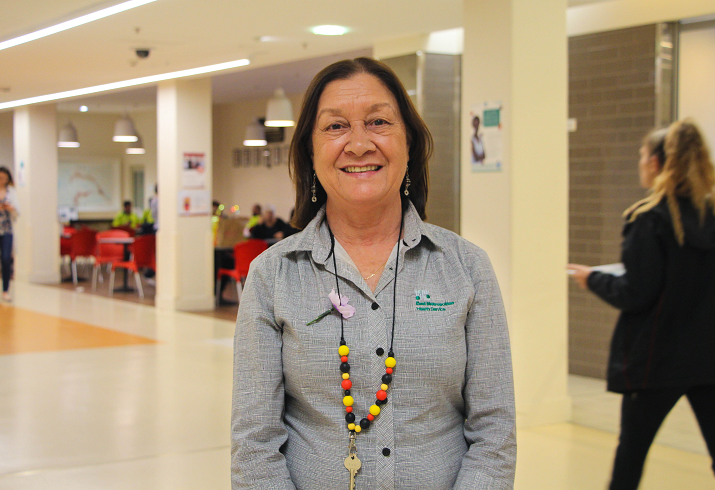Denese Griffin's story

Denese is the Director of Aboriginal Health Strategy at EMHS and plays a vital role in ensuring we continue to provide culturally appropriate care to our Aboriginal patients.
It is important to ensure the voices and stories of our Aboriginal and Torres Strait Islander communities are heard. Here is Denese’s story, in her own words:
“I was born and raised in Derby in the 1950s. I am a Nygkina Walmajari and Jaru woman, and my skin name is Nangala. Both of my grandmothers were removed from their families, so I did not grow up traditionally, but my Nygikina Walmajari grandmother and her extended families guided us in the cultural ways and knowledge of our people. She taught us about our connection to the Fitzroy River – it nourished us, healed us and helped us to connect with the land.
In the 1950s there were significant social factors influencing how Aboriginal people lived in Australia. Aboriginal people were not allowed to be who they were in terms of their identity, learn their language, practice their culture, access public places, or go into the houses of non-Aboriginal people, even friends. This was my lived experience of Australian history growing up. Aboriginal people did not have legal or health rights and it was in this social environment that my journey of advocating for the rights of my family and my people began.
First, I worked in the community, health and aged care sectors with a number of Aboriginal organisations in the Kimberley and the Pilbara. Caring for the health of my family was always important to me, and seeing Aboriginal people, especially in rural and remote areas, experience health conditions that they shouldn’t have, with limited medical help available, highlighted the issues Aboriginal people face with accessing healthcare.
With a Bachelor of Applied Science degree in Aboriginal Community Management and Development, I then worked in the legal sector as an advocate and lobbyist for the rights of Aboriginal and Torres Strait Islander women at State and National levels, in the community and health sectors in various Aboriginal program management and strategy positions at the Department of Communities and the Department of Health.
At EMHS, we are building the cultural foundation. Aboriginal teams in EMHS are working hard to ensure access to healthcare services is made easier for Aboriginal people, and health services and spaces are culturally safe. We are doing this by advocating for the health needs of Aboriginal people, influencing policy and directions and sharing the issues Aboriginal people face and coming up with solutions.
But we aren’t doing this alone – we have four Aboriginal Community Advisory Groups with around 50 members. They have guided and advised us on our strategies – you can’t go wrong if you are guided by your Elders and leaders in the community, the young or elderly, and those who have had the lived experience of being a patient. They are part of EMHS and together we are making a difference.”

